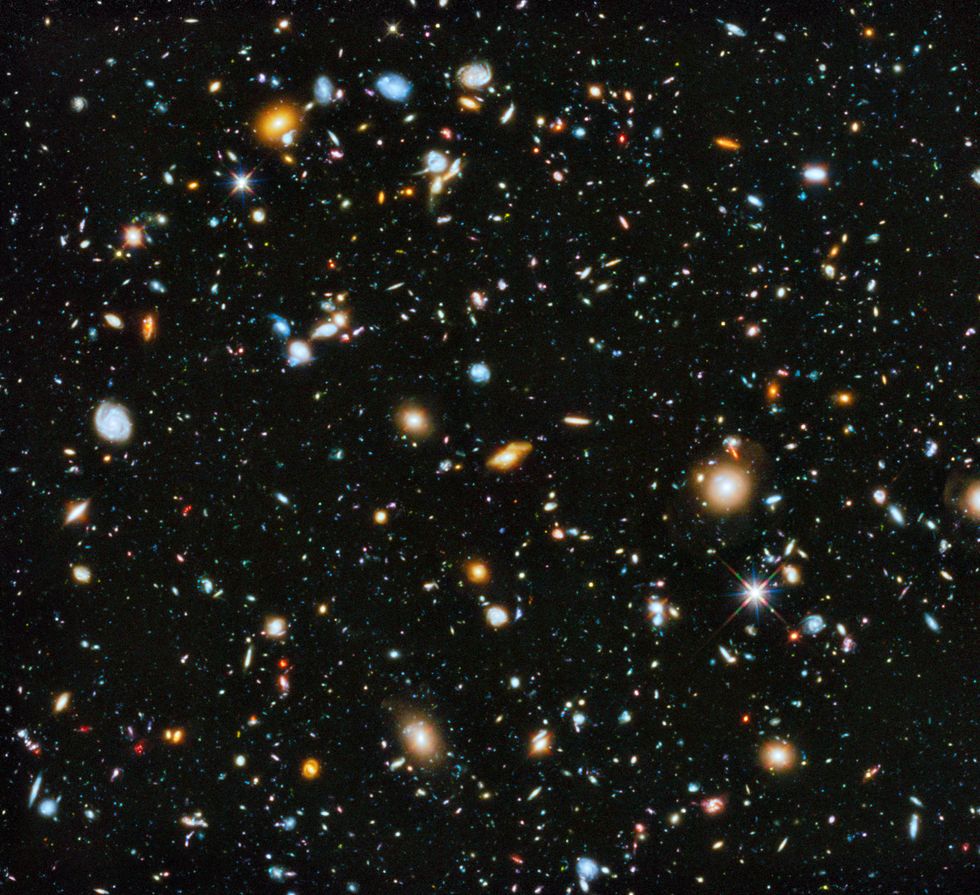Ever since I was a kid, all I can remember is looking up at the night sky. My dad and I would grab a telescope during the evenings and we'd go and take a look up at all the stars, the planets, and the moon - he is the reason why I knew what Jupiter, Venus, and Mars looked like before I ever took an astronomy class. At the time they were pretty objects that colored the sky to me (heck, they still are!), and I would take the time to read children's books about all the planets. This was still during the time when New Horizons hadn't yet reached the likes of Saturn just yet so some of the images they had in these books were just a teensy (...quite) bit blurry, but I still really enjoyed them.
It's a natural instinct to be curious, isn't it? When you look up at the night sky and you're alone with your thoughts, sometimes you ask yourself, what's out there? Can any of us ever get there? Does life outside this planet exist? In order to get any sort of answer, I took an astronomy class in high school to start off, and boy, did I learn something. We were mapping constellations so I ended up staring at the skies again, we learned how the solar system came into existence, how there's an "edge" to the universe - spoiler alert, it's astronomically far away - and way more. This isn't even a fraction of what I've learned but it only added to my curiosity, though my feelings remained the same: Space is awesome.
When you study astronomy - and even if you don't but you still are curious of it - you ask yourself questions, a lot of them. And there are some things that, no matter how hard you study and research it, you will never be able to answer some big questions. For example: We may never know what happened to start the Big Bang. We will never reach the space outside our own Local Group due to the acceleration of space. We may never know what happens on the inside of a black hole. Truth be told, it's disheartening to know that there are some things that are outside our knowledge due to the limitations of our universe and science, and that depresses people. For all we know, we are in a simulation right now and everything we do is predetermined. Space is vast and confusing and frustrating... but it is not without hope.
Sure, we may have a lot more questions than answers, but leaves room for imagination; we have to think outside the box to find answers. Personally speaking, I find that the images that space gives us are awe-inspiring. Take a minute to google images of nebulae, or the Hubble Deep Field, or the Pale Blue Dot (I suggest reading Carl Sagan's quote about the Pale Blue Dot as well), or any of our planets, and you won't be disappointed. Astronomy is practically a part of the human spirit; a wise man once said that we are all made of stardust, and that we are the universe discovering and reacting to itself. From the destruction of stars released elements into the fabric of space and they collected onto this pale blue dot we call Earth to form all of us. When certain sized stars die, they form a nebula where gas and dust collect. New stars are born here (almost like nurseries for stars) and eventually planets, too, so imagine that: from the destruction of a star came the birth of new ones, and potentially new life. When we look up at the night sky, we can see images; that's why if you google some nebulae, you'll find some look like pillars, a Cat's Eye, a butterfly... People have created stories out of constellations to explain why they look the way they do; the universe inspires us, no matter where you're from. The universe contains objects unimaginably small - string theory / quantum physics - to objects unimaginably big, like the Sloan Wall.
The universe was never meant to exist, and yet, here we all are, right now - I'm typing this piece and hopefully you are reading it. Call it pure luck, call it a mystery, but we are alive in this very moment. And that's the hope that keeps me going in the morning; we were no accidents. The universe is under no obligation to make sense to you, me, or anyone, even as we study it, but that doesn't mean we can't be inspired or strive to do our best in our fraction of a fraction of a dot of it that we have. This place can be scary as hell; violent and full of destruction from collisions to black holes to dark matter / dark energy to many more, but just as there is intensity and darkness, there's still light shining that's scattered everywhere, leading to new discoveries everyday.
If you're interested in learning more, I suggest going to Youtube and watching videos from Kurzgesagt - In a Nutshell and Crash Course Astronomy, as they are quite knowledgeable and have available resources. And if you're ever in the mood to explore to the edge of the universe, then check out the video made by the American Museum of Natural History, titled "The Known Universe by AMNH." You won't regret it.
















